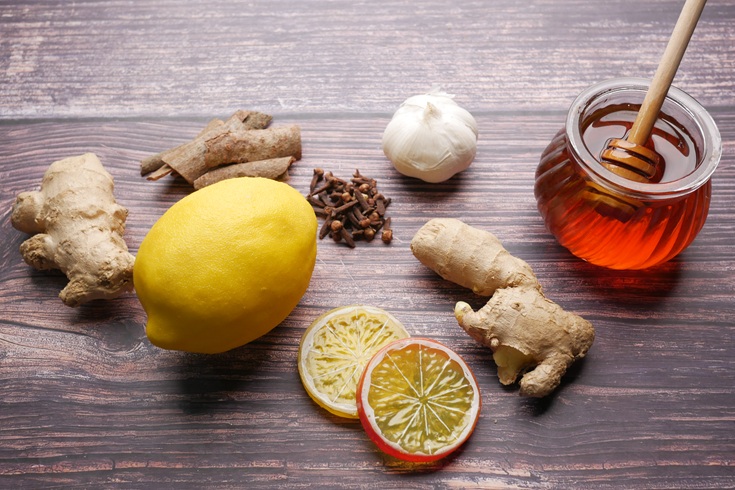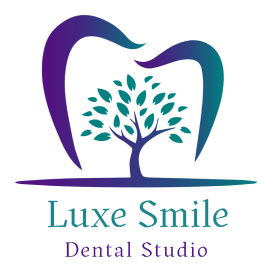What’s the Best Natural Antibiotic to Treat an Abscessed Tooth?


An abscessed tooth brings intense pain that can quickly push a dental visit to the top of your priorities. And while professional dental care is always the best course of action for any tooth infection, many people are curious about natural remedies, especially when they want quick relief or are looking for something to complement traditional treatment.
If you’re wondering what the best natural antibiotic is for an abscessed tooth, this guide will walk you through your options. We’ll explore effective plant-based home remedies that may help reduce pain, fight infection, and give you a bit of peace until you can see your dentist.
What Is an Abscessed Tooth?
An abscessed tooth is a pocket of pus caused by a bacterial infection. It can develop in different areas of the tooth due to trauma, decay, or gum disease. The infection can spread quickly and cause severe pain, swelling, and even fever. Without treatment, the bacteria can enter your bloodstream and affect other parts of your body.
Common signs of an abscessed tooth include:
- Persistent toothache
- Sensitivity to hot or cold
- Swollen face or gums
- A foul taste in your mouth
- Swollen lymph nodes
- Fever or fatigue in some cases
Now, while natural remedies can’t replace a dentist’s work, some have been shown to offer temporary relief and may help support your immune system during the healing process.
Can Natural Antibiotics Help?
Short answer—yes, to a certain degree.
Natural antibiotics don’t work like pharmaceutical antibiotics. They’re not designed to target and kill bacteria in the same targeted way. But some have powerful antibacterial and anti-inflammatory properties that can help fight infection, reduce swelling, and support healing.
Keep in mind: these options are supportive, not curative. They are best used alongside professional dental care, not in place of it.
1. Garlic: Nature’s Powerhouse
Garlic is one of the most well-known natural antibiotics. It contains allicin, a compound with strong antibacterial and antifungal effects. Garlic has been used for centuries to treat infections and boost immunity.
How to Use:
- Crush one garlic clove and let it sit for 10 minutes to activate the allicin.
- Apply the crushed garlic directly to the affected area for a few minutes.
- Rinse thoroughly with warm salt water.
Repeat this process twice a day for the best results.
Note: Garlic can cause a burning sensation. If it’s too uncomfortable, mix it with a small amount of olive oil.
2. Clove Oil: A Natural Numbing Agent
Clove oil is one of the most popular home remedies for dental emergency. It contains eugenol, a compound with natural antiseptic and numbing properties.
How to Use:
- Dip a cotton ball in clove oil and place it on the affected area.
- Leave it there for 15–20 minutes.
- Rinse your mouth with warm water.
You can do this two to three times a day to ease the pain and inflammation.
If you don’t have clove oil, chewing on a whole clove can also help.
3. Turmeric: The Anti-Inflammatory Spice
Turmeric is more than just a golden spice used in cooking—it’s a natural anti-inflammatory and antibacterial agent. It can help reduce swelling and fight infection around the abscessed tooth.
How to Use:
- Mix 1 teaspoon of turmeric powder with water or coconut oil to make a paste.
- Apply it directly to the affected gum area.
- Leave it on for 10–15 minutes before rinsing with warm water.
You can repeat this process a few times a day.
For added immune support, you can also drink turmeric tea or take it in supplement form.
4. Salt Water Rinse: Simple but Powerful
Sometimes, the most effective remedies are the simplest. A warm saltwater rinse can help flush out bacteria, reduce inflammation, and soothe irritated tissue.
How to Use:
- Mix 1/2 teaspoon of salt in a cup of warm water.
- Swish it around your mouth for 30 seconds, then spit it out.
- Repeat several times a day.
This is especially helpful after using garlic or clove oil to keep the area clean.
5. Oregano Oil: Small Drops, Big Results
Oregano oil is packed with carvacrol and thymol, two compounds known for their strong antimicrobial effects. It’s one of the more potent essential oils for oral health.
How to Use:
- Mix a drop or two of oregano oil with a carrier oil (like olive oil).
- Apply it to the swollen area using a cotton swab.
- Let it sit for 10 minutes before rinsing.
This oil is very strong, so avoid using it undiluted.
6. Hydrogen Peroxide (Food Grade, Diluted)
While not exactly “natural,” food-grade hydrogen peroxide is often grouped with home remedies. It can help kill bacteria and reduce infection if used carefully.
How to Use:
- Mix equal parts of 3% hydrogen peroxide and water.
- Swish it in your mouth for 30 seconds, then spit it out.
- Do not swallow it.
Use this only once daily and never for more than a few days in a row.
When Natural Isn’t Enough: Know the Red Flags
While these natural options can reduce pain and inflammation, they won’t cure an abscess. If left untreated, the infection can worsen and cause serious health issues.
Seek dental help immediately if you notice:
- High fever
- Swelling that spreads to your face or neck
- Difficulty breathing or swallowing
- Pain that gets worse despite using remedies
- Pus draining from the tooth or gum
Dentists can drain the abscess, perform a root canal, or, in some cases, extract the tooth. You might also be prescribed antibiotics to clear the infection from your system.
Supporting Healing from the Inside
Alongside these remedies, supporting your body’s natural defenses is key. Here’s how:
- Drink plenty of water.
- Eat anti-inflammatory foods like leafy greens, berries, and citrus fruits.
- Avoid sugar, which feeds bacteria.
- Get enough sleep and manage stress.
These small steps can help your body fight the infection more effectively.
So, What’s the Best Natural Antibiotic?
If we had to pick one standout option, garlic is probably the strongest natural antibiotic for an abscessed tooth. It’s widely available, well-researched, and incredibly effective in fighting bacteria. But pairing garlic with clove oil for pain, turmeric for inflammation, and salt water for cleaning makes for a stronger home-care routine.
Still, no matter how powerful these remedies are, they are not substitutes for dental treatment. An abscess is a sign that something serious is happening inside your mouth, and only a dentist can treat the root cause safely and completely.
Natural remedies like garlic, clove oil, and turmeric can provide temporary relief and support your body’s fight against infection. But if you’re dealing with a painful abscessed tooth, these are short-term tools, not long-term solutions. Dental care is the only way to fully treat the problem and prevent complications.
Listen to your body. Use these remedies wisely. And make sure you book that dental appointment.





